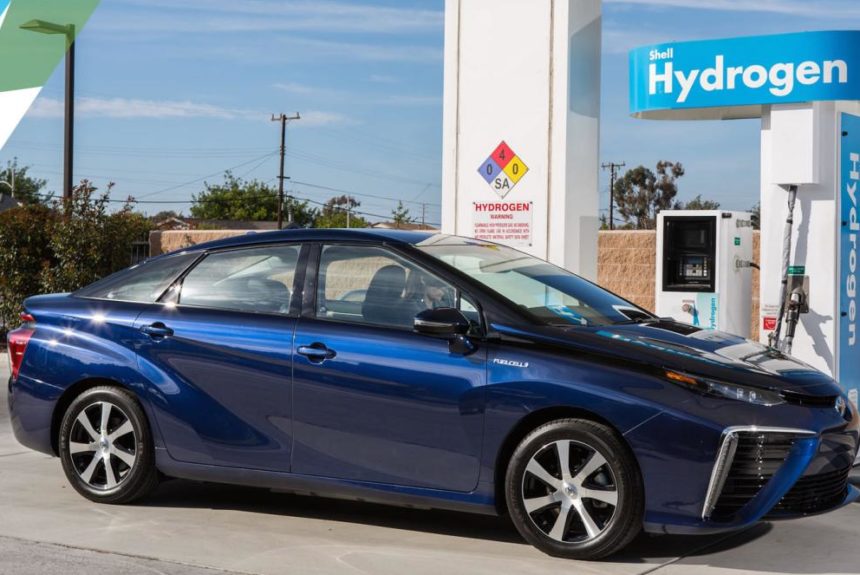By Frank Maisano
We are at a critical juncture for the transition of the American energy system. The future can be efficient, sustainable, powerful and reliable.
States, cities, corporate America and the Biden Administration are undertaking efforts to address the challenges of climate change. As they move toward that shared goal, they must also challenge our societal and cultural approach to energy.
It seems like there are new announcements every day. The latest is GM’s pitch to sell only electric cars by 2035, expanding the company’s announcement of a similar goal for the state of California. That goal may not be achievable. But bold strokes and innovation are what it will take to change our climate policy and action landscape.
While many innovative technologies can and will be a part of the solution, hydrogen is among the most promising.
Hydrogen is the ultimate game changer. Not only does it assure energy system reliability, affordability and security, but because it is versatile, it can address the sustainability needs of a multitude of markets. Development of this resource supports repurposing our existing infrastructure while creating economic development, local jobs, greater fuel diversity and system resilience.
Many places around the globe are making big bets on hydrogen. Right here in the United States, both California and states in the northeast are already moving forward with supply and infrastructure that can begin to foster a hydrogen economy. Just last week, Air Liquide activated the largest hydrogen electrolyzer production plant in the world, producing up to 8.2 tons per day of low-carbon hydrogen in Bécancour, Québec. And in California, state energy policy leaders recognize there is no way they can get to 100% renewable energy without hydrogen as part of the solution set.
Hydrogen is a critical element to the energy transition, one that helps to address the challenges of climate change while ensuring energy system reliability from transportation systems and power generation, all while maintaining affordability for Americans.
Around the world, we can see hydrogen at work in sustainable, next-generation technologies. Corporate leaders are making critical investments and engaging in the advanced research and development activities necessary for creating new technologies. And we know this hydrogen–led innovation is already making a difference. If you received any packages from big shippers like Amazon, Wal-Mart or others since the COVID pandemic began, Ballard hydrogen fuel cell products, which power the fleet of forklifts in their distribution centers across the U.S., made that possible. These vehicles have no emissions and the hydrogen filling is as quick as topping off a gas tank – much faster and more productive than having a portion of the fleet sit idle while recharging an electric battery.
Even on the power generation side hydrogen is playing a role in innovation. The Intermountain Power Agency will retire its coal units in 2025 and replace them with combined cycle technology capable of utilizing 30% renewable hydrogen at the start, reaching 100% by 2045. Big utilities like Dominion, DTE Energy and SoCal Gas are partners in facilities across the country from Vermont to Virginia, Wisconsin to central California that are capturing methane from landfills to improve the climate and create renewable natural gas which becomes a “green” feedstock for hydrogen to be used in transportation and industrial processes.
While states and the private sector are leading the way to the energy transition, the Biden Administration can help in its infrastructure push by developing a comprehensive Federal Hydrogen Initiative that can set a course toward developing and mobilizing this strategic resource. The policies included in any federal framework must address Advanced Research, Development and Demonstration (RD&D) that would improve material sciences, controls and system platforms; and reform wholesale markets to include hydrogen and incorporate hydrogen into energy system planning. All of these approaches will enable the unbounded availability and supply of clean molecules to power a cleaner energy future.
Hydrogen can help assure energy system reliability, affordability, and security while reducing greenhouse gas emissions, pollution in our cities and dependency on fossil fuels. It can deliver greater fuel diversity and freedom of choice for consumers and businesses. As we look to a greener world, hydrogen must be an important part of the energy future.
Frank Maisano is Senior Principal at Bracewell.
The views and opinions expressed are those of the author’s and do not necessarily reflect the official policy or position of C3.
